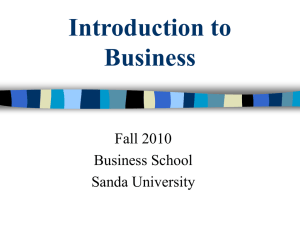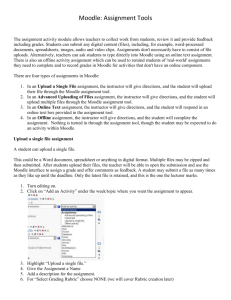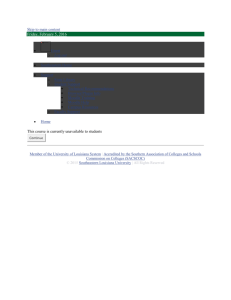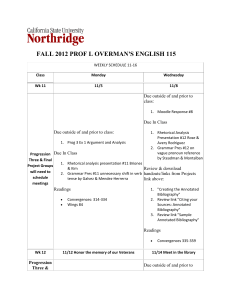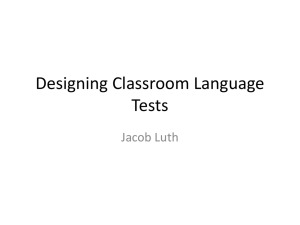Journals
advertisement
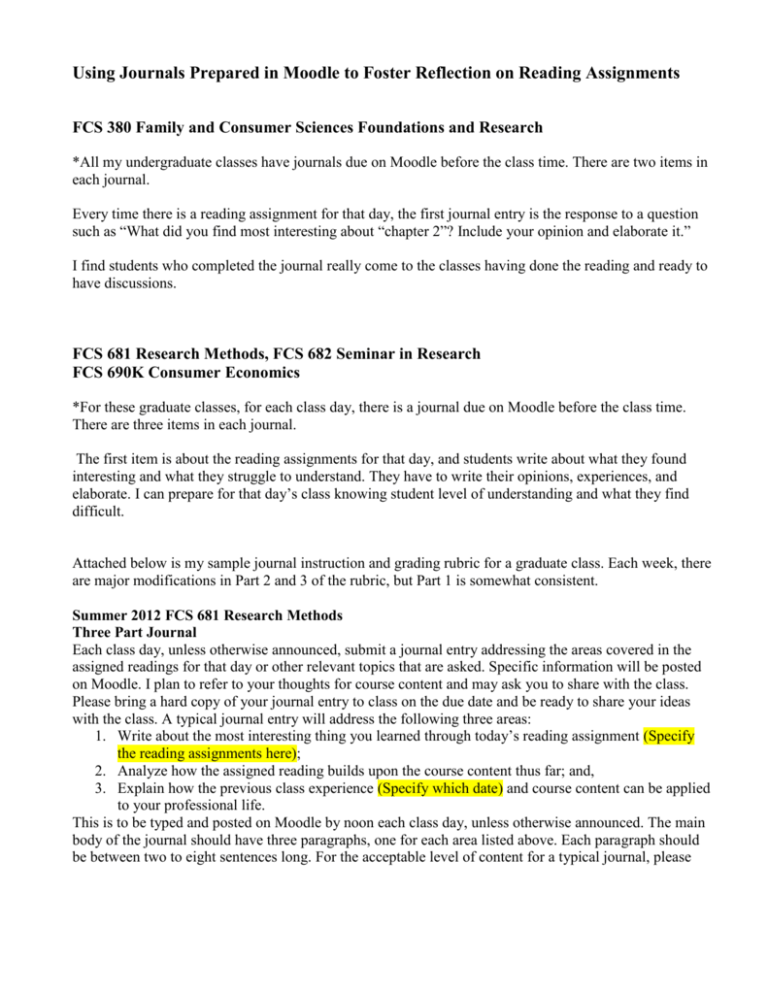
Using Journals Prepared in Moodle to Foster Reflection on Reading Assignments FCS 380 Family and Consumer Sciences Foundations and Research *All my undergraduate classes have journals due on Moodle before the class time. There are two items in each journal. Every time there is a reading assignment for that day, the first journal entry is the response to a question such as “What did you find most interesting about “chapter 2”? Include your opinion and elaborate it.” I find students who completed the journal really come to the classes having done the reading and ready to have discussions. FCS 681 Research Methods, FCS 682 Seminar in Research FCS 690K Consumer Economics *For these graduate classes, for each class day, there is a journal due on Moodle before the class time. There are three items in each journal. The first item is about the reading assignments for that day, and students write about what they found interesting and what they struggle to understand. They have to write their opinions, experiences, and elaborate. I can prepare for that day’s class knowing student level of understanding and what they find difficult. Attached below is my sample journal instruction and grading rubric for a graduate class. Each week, there are major modifications in Part 2 and 3 of the rubric, but Part 1 is somewhat consistent. Summer 2012 FCS 681 Research Methods Three Part Journal Each class day, unless otherwise announced, submit a journal entry addressing the areas covered in the assigned readings for that day or other relevant topics that are asked. Specific information will be posted on Moodle. I plan to refer to your thoughts for course content and may ask you to share with the class. Please bring a hard copy of your journal entry to class on the due date and be ready to share your ideas with the class. A typical journal entry will address the following three areas: 1. Write about the most interesting thing you learned through today’s reading assignment (Specify the reading assignments here); 2. Analyze how the assigned reading builds upon the course content thus far; and, 3. Explain how the previous class experience (Specify which date) and course content can be applied to your professional life. This is to be typed and posted on Moodle by noon each class day, unless otherwise announced. The main body of the journal should have three paragraphs, one for each area listed above. Each paragraph should be between two to eight sentences long. For the acceptable level of content for a typical journal, please refer to the following grading rubric. Grading Rubric: Component (Example) Part 1: Most interesting things learned Part 2: How it builds upon the course content so far Part 3: Professional life Mechanics Pass Your ideas or opinions are presented in a logical and coherent manner, with strong topic sentences to guide the reader. Your central argument is clear, interesting, and demonstrated using evidence, specific to the current stage of the course. Your arguments and claims reflect a robust and nuanced understanding of key ideas from this course. You refer to specific experiences or content from the previous class day, with original insights or a particularly engaging argument. There is no distracting spelling, punctuation, or grammatical errors, and quotations are all properly cited. Fail Instead of your ideas, at most, a summary of the reading is presented. Your central argument is clear and demonstrable. While your arguments and claims reflect a solid understanding of key ideas from this course, the argument is not specific to the particular class meeting/date to make this entry unique. You provide general links to the course, but not the particular day’s class experiences or content and your professional life. Your writing refers to the wrong day’s class experiences or content, or your writing does not link reading assignments with your professional life. The writing style does not meet the expectations for graduate work.

